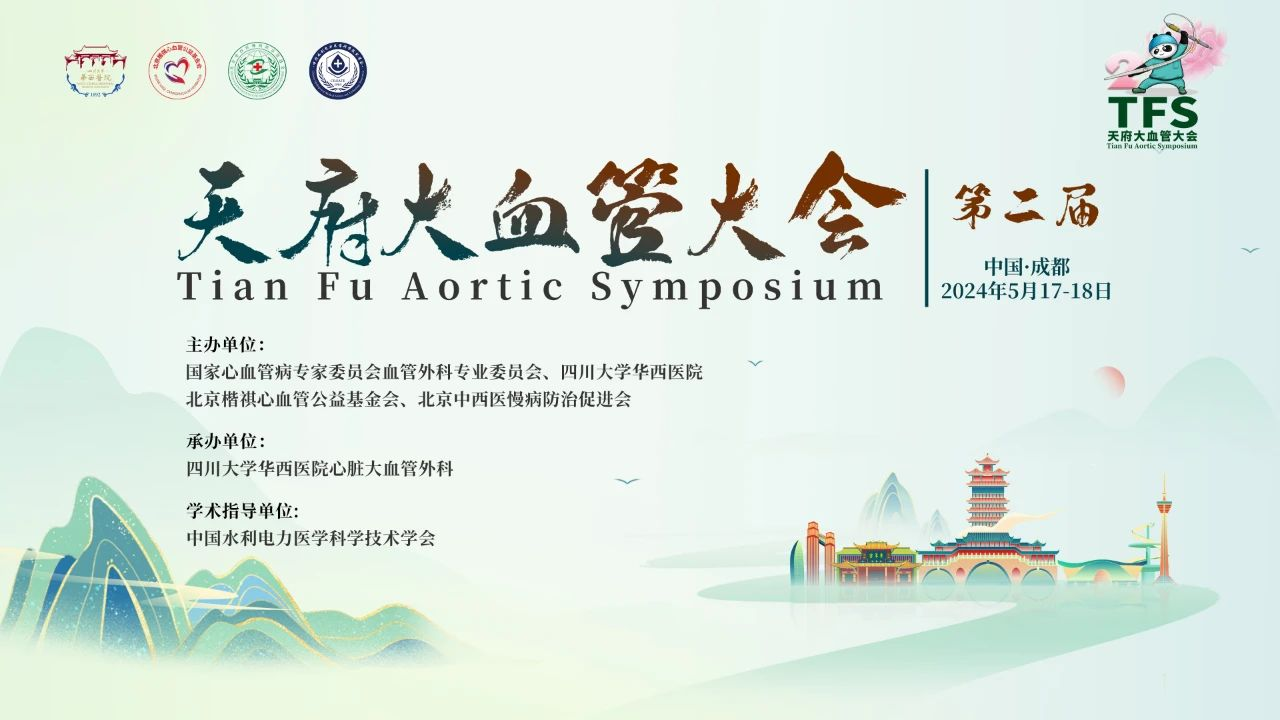
On May 18, 2024, at the 2nd Tianfu Vascular Conference (TFS 2024) held in Chengdu, Professor Zhu Junming from the Department of Cardiac Surgery at Beijing Anzhen Hospital, Capital Medical University, shared his team’s latest strategies and research achievements in the diagnosis and treatment of thoracoabdominal aortic aneurysms (TAAA). The presentation covered epidemiological data, updated treatment guidelines, surgical innovations, and detailed case analyses.
Epidemiological Overview
Incidence Rate: Recent studies indicate that the annual incidence of TAAA ranges between 5.9 to 14 per 100,000 people. Patients with aneurysms exceeding 5 cm in diameter have significantly increased risk.
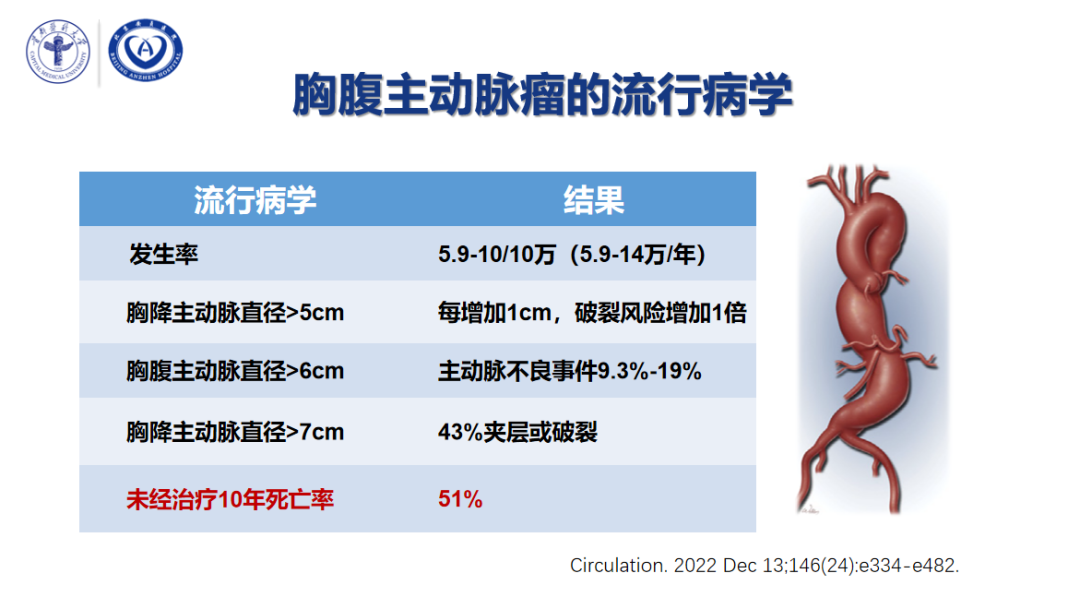
Surgical Demand Trend: Data from Chinese cardiac surgery in 2022 shows that the proportion of aortic surgeries increased from 11% in 2019 to 14% in 2023.
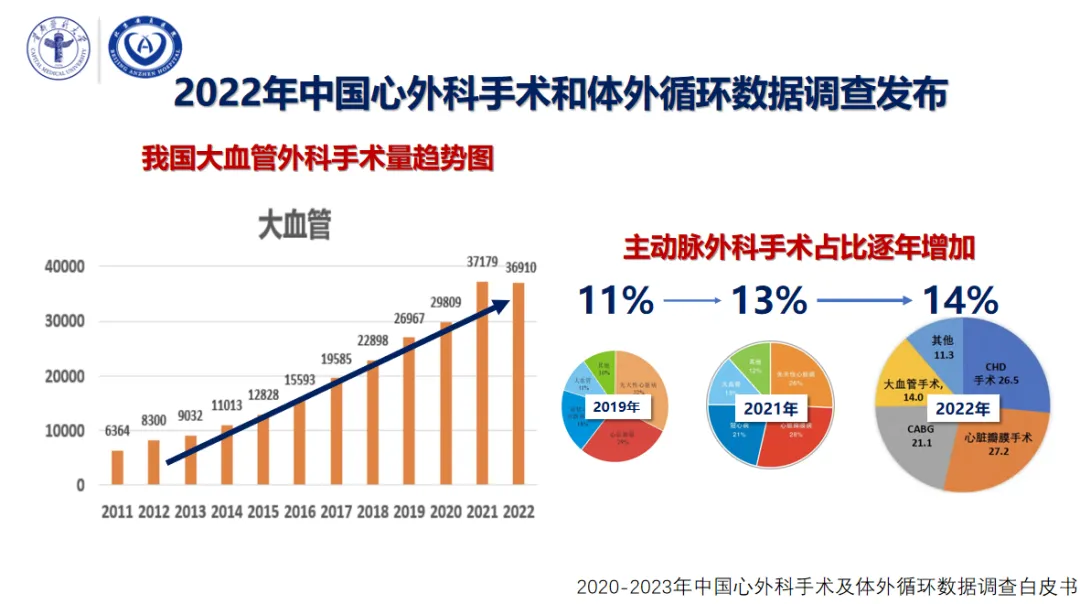
Advances in Diagnostic and Monitoring Technologies
High-Resolution Imaging: Utilizing advanced CT and MRI technologies, physicians can accurately assess aneurysm size, shape, and rupture risk.
Biomarker Research: Emerging studies focus on identifying biomarkers that can predict aneurysm growth and rupture.
Updated Treatment Guidelines
2022 ACC/AHA Guidelines: Recommend surgical intervention for TAAA with a diameter ≥6 cm.
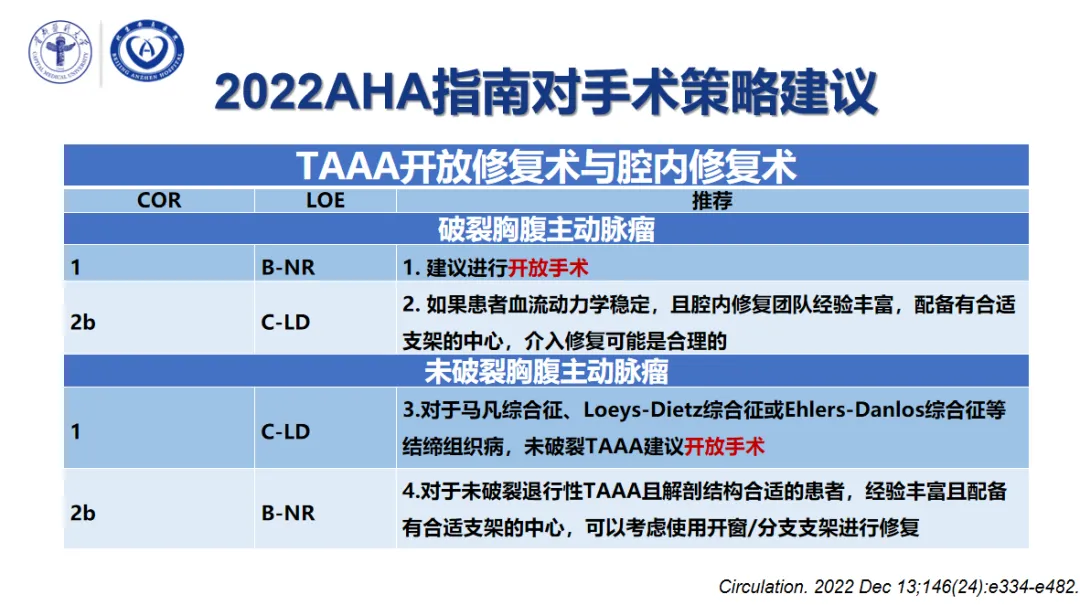
2024 EACTS Guidelines: Suggest considering surgical intervention for aneurysms ≥5.5 cm in diameter, even if asymptomatic.
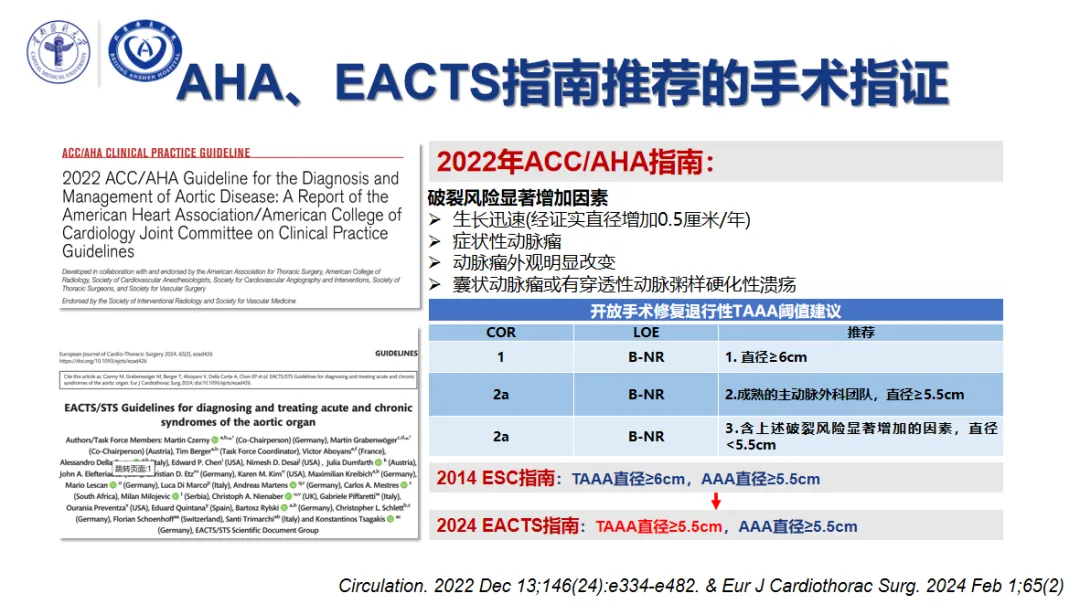
Surgical Techniques and Methods
Open Surgery vs. Endovascular Repair (EVAR): The presentation analyzed the indications, advantages, and latest technologies for both open surgery and EVAR, including the use of branched and fenestrated stents.
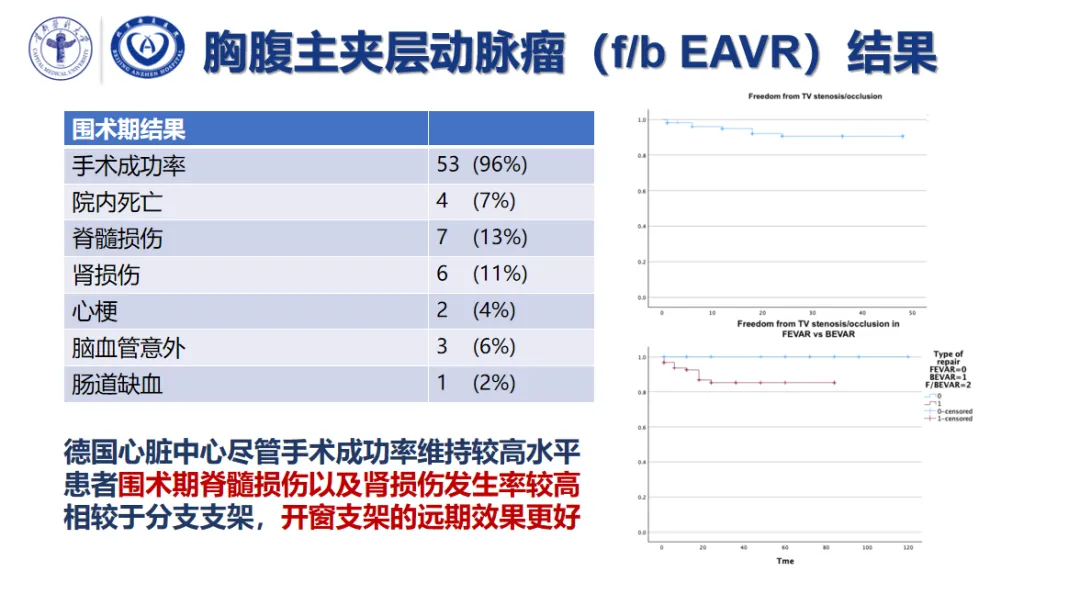
Postoperative Management and Recurrence Rates: Statistics indicate that the 5-year intervention-free survival rate is 86.7% for open surgery and 81.5% for EVAR.
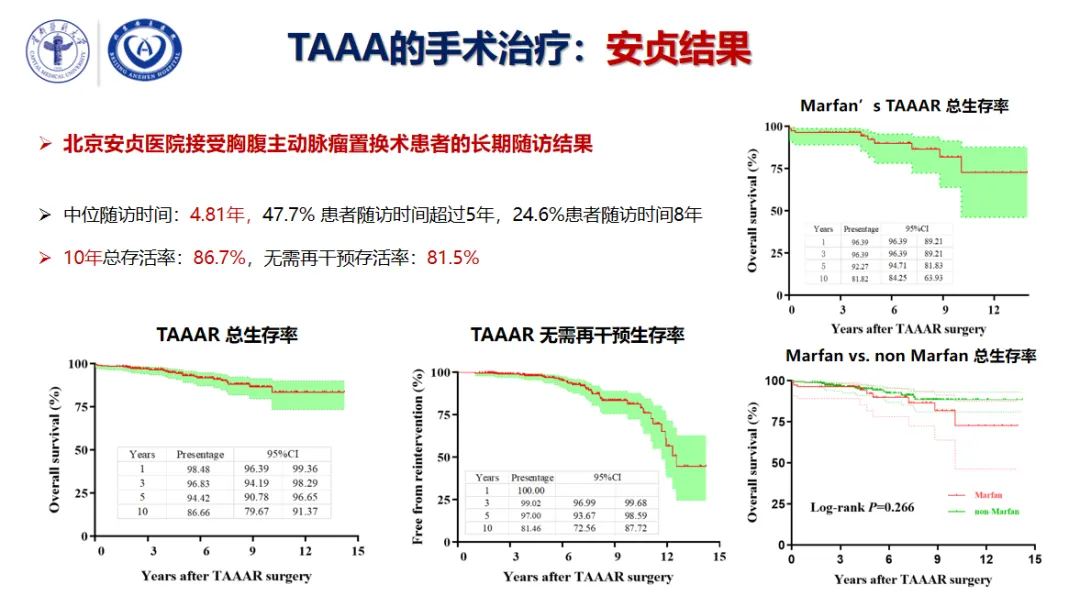
Clinical Research and Future Directions
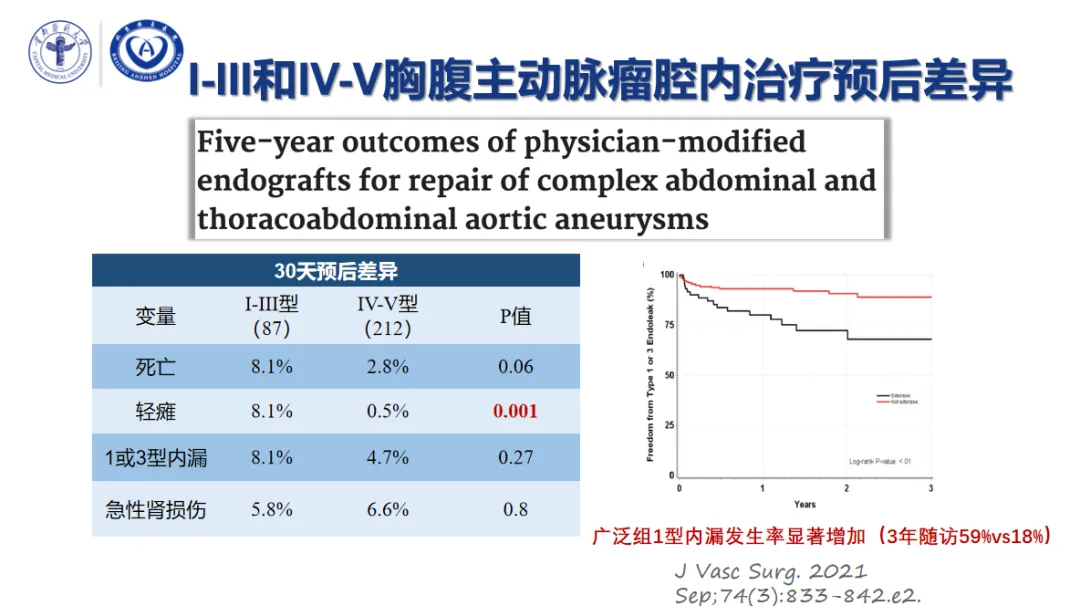
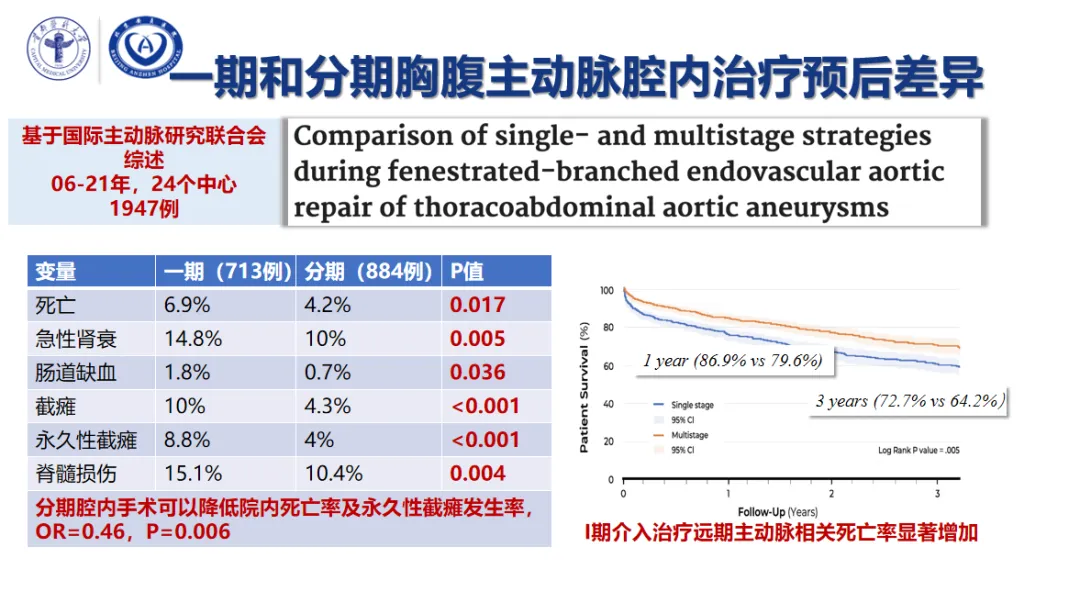
International Collaboration Case Studies: Highlighted clinical research cases conducted in collaboration with renowned international cardiovascular centers.
Future Research Directions: Discussed the potential applications of gene editing technologies and bioengineered materials in the future treatment of TAAA.
International Perspectives and Policy Updates
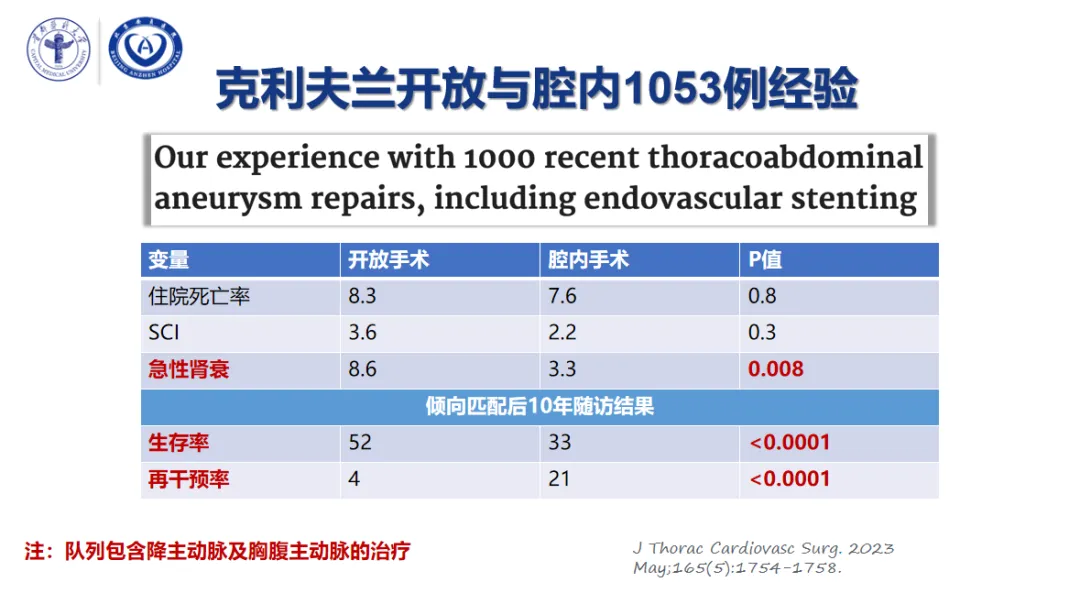
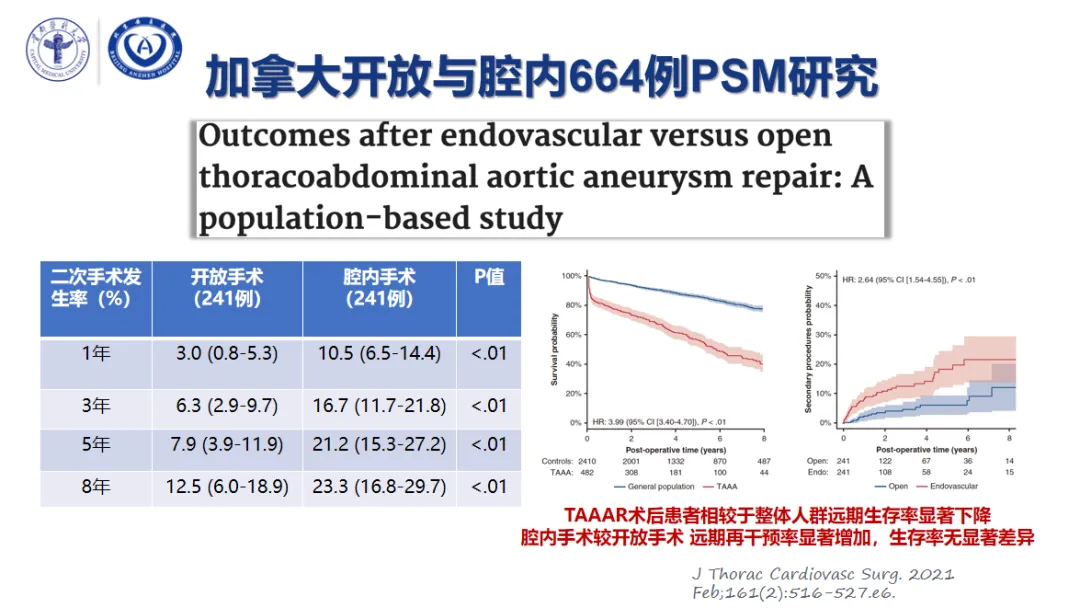
Comparison of International Treatment Guidelines: Compared treatment guidelines from different countries and discussed their implications for clinical practice in China.
Policy and Healthcare System Impact: Analyzed how changes in healthcare policies affect treatment strategies and patient outcomes for TAAA.
Conclusion
Recent studies indicate a rising incidence and surgical demand for TAAA. The 2022 ACC/AHA and 2024 EACTS guidelines recommend surgical intervention at specific diameter thresholds. Open surgery and EVAR remain primary treatment options, with open surgery preferred for patients with connective tissue disorders. Future research directions include the application of gene editing and bioengineered materials to improve treatment personalization and effectiveness.
Contact Us
In the upcoming series of articles, we will continue to provide more in-depth analysis of TEVAR technology, including its indications and contraindications, new technological developments, surgical procedures, complication management, case studies, and future directions. Stay tuned! If you have any questions or interests regarding TEVAR technology or the Tianfu Vascular Conference, please leave a comment or contact us via email at endovascluar@simtomax.cn. Thank you for your attention. Let’s work together for health!


